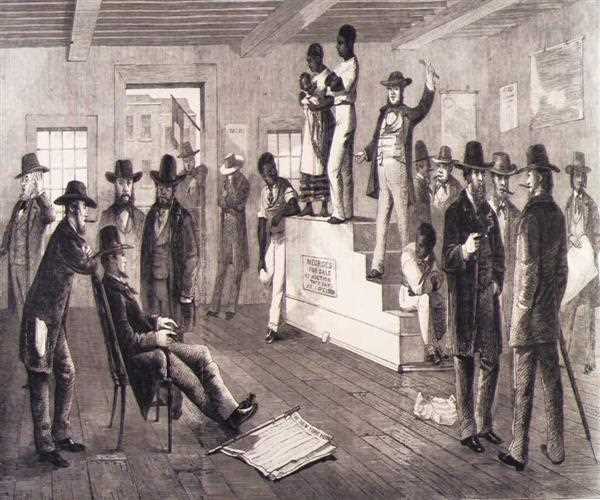Servitude and the slave exchange were key to the historical backdrop of eighteenth-and nineteenth-century Philadelphia as the locale monetarily profit by the establishment and managed strains made by slave exchanging, slave holding, and abolitionism. Early Philadelphia, an Atlantic exchanging center, ended up both a point of convergence for the slave exchange and a network of subjugated Africans. Slaves made their own particular family and informal communities while at the same time incorporating into white Philadelphia, molding the political, financial, and social course that the locale took into the nineteenth century.

Slave work was vital to the locale even before William Penn (1644-1718) established Pennsylvania. New Sweden homesteaders, whose settlement from 1638-1655 fixated on display day Wilmington, Delaware, and reached out all through the lower Delaware Valley, imported the principal African slaves in the mid-to late seventeenth century. After Penn established his state, subjection kept on being necessary to the newborn child city of Philadelphia and its environs with the principal slave deliver landing in Philadelphia itself in 1684. Slaves filled work needs in numerous occupations as the district built up an assorted economy. Pilgrims in New Jersey and Delaware used bondage in basically a similar ways, however grower in focal and southern Delaware utilized slaves to develop tobacco, wheat, and different wares.
The nearness of obligated hirelings in the provincial time frame made a cross breed work framework in which the district's contracted white workers, free wage workers, and slaves worked close by each other. This framework made adaptability for addressing work needs as work expenses and supply vacillated all through the pilgrim time frame. Bosses routinely enlisted out their slaves, which additionally added to the work framework's adaptability and the local effect of subjection. The procuring out framework enabled slaves to move all through the locale on long and here and now contracts to different bosses. Local Americans were incidentally among the oppressed until at any rate the center of the eighteenth century, however most subjugated individuals were Africans or African relatives.
By the 1710s, race-based subjection had created and European homesteaders defended servitude by considering Africans to be savage, rapscallion, and in this way qualified for subjugation. Through Philadelphia's port, as in different settlements, these thoughts of race and servitude came into the locale as dealers and mariners took an interest in the development of Western subjugation and the slave exchange.
The slave exchange spoke to a noteworthy piece of the Philadelphia area's relationship to the Atlantic world, the systems shaped in terms of professional career, relocation, and political relationship between Europe, Africa, and the Americas. Slave ships furnished in Philadelphia made a trip toward the West African drift to exchange for slaves, however the lion's share of slaves who entered the district did not originate from Africa specifically.
Most came in the wake of living for quite a long while in the Caribbean with their lords or on slave sends whose experts had obtained them in the Caribbean available to be purchased in the littler North American market. These to a great extent West African slaves filled work deficiencies in the Philadelphia locale, particularly when disturbances restricted the supply of contracted workers. For instance, when the Seven Years' War interfered with the stream of obligated workers, the Philadelphia district imported very nearly 1,300 slaves in a nine-year time span, including numerous specifically from Africa.
By 1767, fifteen percent of Philadelphia families claimed slaves. In any case, the slave exchange to the district to a great extent finished when Pennsylvania exacted a high obligation on imported slaves in 1773 because of fears of slave revolt and in addition calls to end the most frightful piece of the foundation of subjection. Most different states had additionally started to restrict or preclude the slave exchange by the start of the Revolution for comparable reasons, including New Jersey and Delaware, a pattern which proceeded when everything except South Carolina and Georgia prohibited the exchange the outcome of the Revolution.
Talks of abolitionism created couple with subjugation's expansion.
In 1688, four Germantown Quakers challenged African bondage, which reflected Quaker organizer George Fox's (1624-91) addressing of the establishment. Nonetheless, Quakers kept on holding slaves all through the frontier time frame as few trusted the training unethical as long as proprietors treated their slaves decently and without viciousness. In 1776, the Philadelphia Yearly Meeting prohibited its individuals from owning slaves or face disownment from the Society of Friends.
"Cheers"